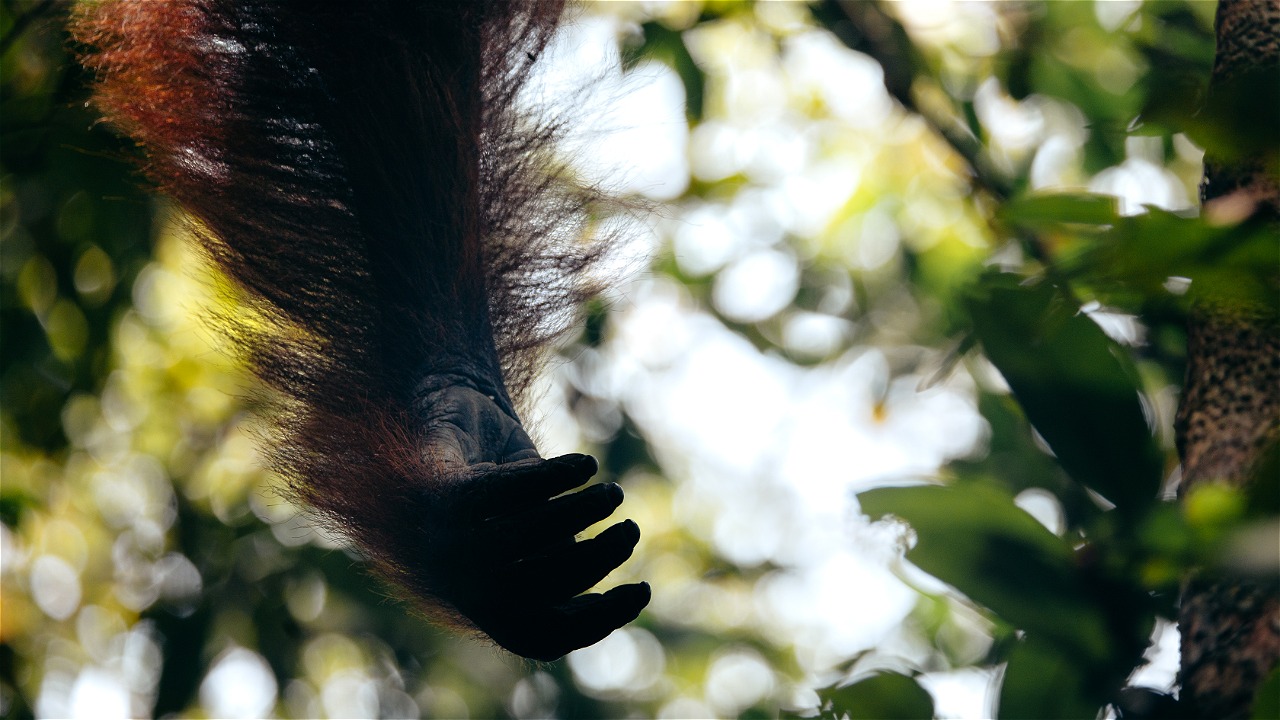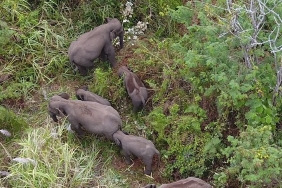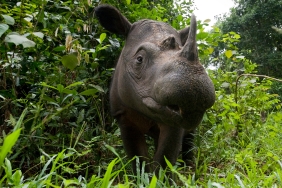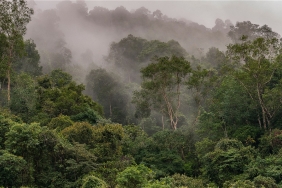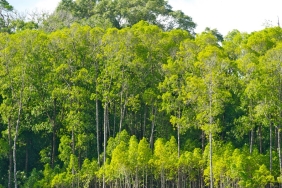SAVING WHAT'S LEFT OF THE ILLEGAL WILDLIFE TRADE
. The abundance of poaching and illegal wildlife trade, forest fires, and conversion of natural forests for plantations, has caused the habitat of wildlife to shrink and be squeezed. These conditions threaten the survival of various endangered animals, including tigers, elephants and orangutans. These are the words and sentences from the problems faced by wildlife in Indonesia, which echoed in the discussion Making Everyday Wildlife Conservation Day at @america, Pacific Place Mall, Jakarta (4/12).
The discussion was opened by remarks from the Deputy Chief of Mission of the American Embassy, Kristen F. Bauer, and remarks from the Director General of Forest Protection and Nature Conservation (PHKA) of the Indonesian Ministry of Forestry, read by Mr. Agus Didi, Head of the Sub-Directorate for Species and Species Protection. The U.S. government pays serious attention to the problem of illegal trade in endangered species, which has become a global problem, and will increase cooperation with various countries, including Indonesia, to help address it. Present at the event were The Borneo Orangutan Survival Foundation (BOSF), World Wide Fund for Nature (WWF), Jakarta Animal Aid Networks (JANN), and representatives of the US Embassy. The speakers addressed the issue of conservation and protection of endangered animals in Indonesia, both terrestrial and marine species, and discussed how to tackle the illegal trade of animals in Indonesia.
Wildlife is on the verge of extinction if protection and conservation efforts are not maximized with the support of all stakeholders. Indonesia has one of the longest lists of endangered species, including 140 bird species, 77 mammal species, 21 reptile species, 65 freshwater fish species, and 281 plant species. Moreover, 72% of the forests that serve as habitat for wildlife in Indonesia have been lost.
The high price and high profit, as well as the lack of optimal law enforcement efforts, have led many people to hunt wildlife for illegal trade. According to the United States Government, the estimated value of the global illegal wildlife trade is US$7-10 billion.
According to Chairul Saleh, Conservation Science for Flagship Species Coordinator WWF-Indonesia, illegal wildlife trade is rampant due to the market demand for certain animal parts that are believed to provide health benefits, although it is difficult to prove scientifically. In addition, the economic value of this forestry crime is quite high. Chairul recommends establishing good cooperation between the government, non-governmental organizations (NGOs), and the public, including communities living around forests.
"Several steps are needed to solve the wildlife trade, such as monitoring poaching and illegal trade of animals, increasing the capacity of law enforcement officers, especially those related to species protection regulations and understanding of animal ecology, increasing cooperation between the Ministry of Forestry with law enforcement officers and other related agencies, increasing cooperation at the regional and global levels, and empowering communities around the forest. These things require serious commitment from all parties so that the chain of wildlife trade can be broken," Chairul said.
Not only that, efforts and support from the government are also needed to deter wildlife trade criminals. In order to provide more protection for species and their habitats, the Indonesian government is currently updating the species protection law, including proposing more severe sanctions for animal criminals.
The final step, which is also very important, is public awareness about the dangers of illegal wildlife trade. "If not supported by public awareness in helping to protect wildlife, including by not wanting to buy and keep wildlife, any measures will not work. The rampant illegal wildlife trade is fueled by market demand. If people stop this demand, the illegal wildlife trade will be reduced. "Keeping wildlife, especially protected ones, including keeping their body parts, is not a matter of pride or prestige. It is actually a crime because it violates the law," Chairul explained.

